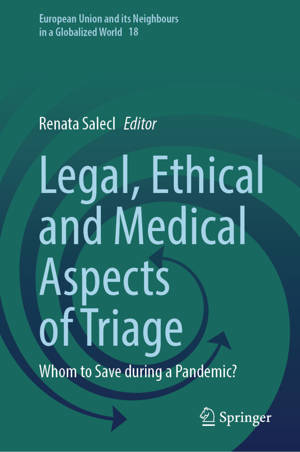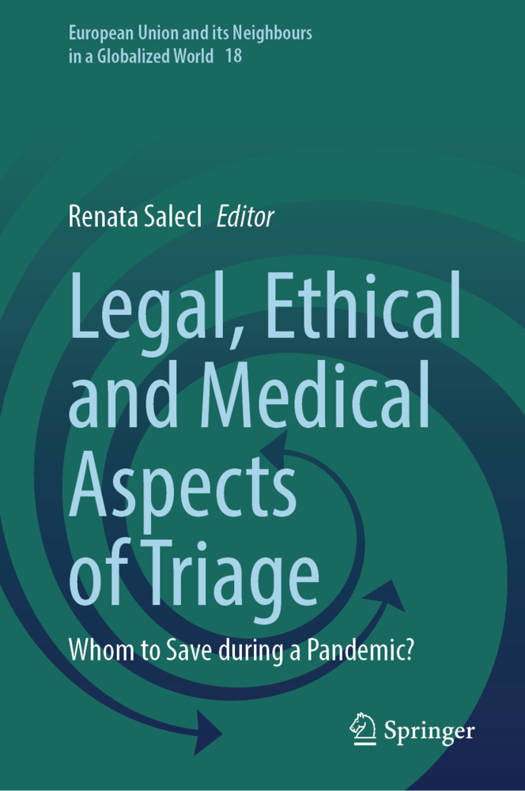
- Retrait gratuit dans votre magasin Club
- 7.000.000 titres dans notre catalogue
- Payer en toute sécurité
- Toujours un magasin près de chez vous
- Retrait gratuit dans votre magasin Club
- 7.000.000 titres dans notre catalogue
- Payer en toute sécurité
- Toujours un magasin près de chez vous
Legal, Ethical and Medical Aspects of Triage
Whom to Save During a Pandemic?
Description
Triage decision-making during a pandemic is linked to complex ethical, medical, and legal dilemmas, which in the past have been discussed mainly based on hypothetical scenarios. The crisis caused by Covid-19 has shown these dilemmas to be very real, and many countries faced significant health care challenges during the pandemic. The book presents different views on the problems of triage during the time of Covid-19 and to shed a light on how various countries approached triage during the pandemic.
The absence of staff and resources in many countries opened a discussion of whether they should strive for the most egalitarian way of deciding whom to help with limited resources or to act in a utilitarian manner and establish a triage system based on saving as many people as possible. There were so-called conflicts of duty in many parts of the world, and decision-makers who had to choose which patients would survive in the absence of resources were under tremendous pressure. This book presents different views on the issue of such decision-making from legal, ethical, and medical points of view. The authors explain the origin of the concept of triage and its use in modern medicine. They point out the distinction between triage and the allocation of resources while also analysing how pandemic triage differs from emergency and disaster triage.
Spécifications
Parties prenantes
- Editeur:
Contenu
- Nombre de pages :
- 199
- Langue:
- Anglais
- Collection :
- Tome:
- n° 18
Caractéristiques
- EAN:
- 9783031737534
- Date de parution :
- 23-12-24
- Format:
- Livre relié
- Format numérique:
- Genaaid
- Dimensions :
- 155 mm x 235 mm






